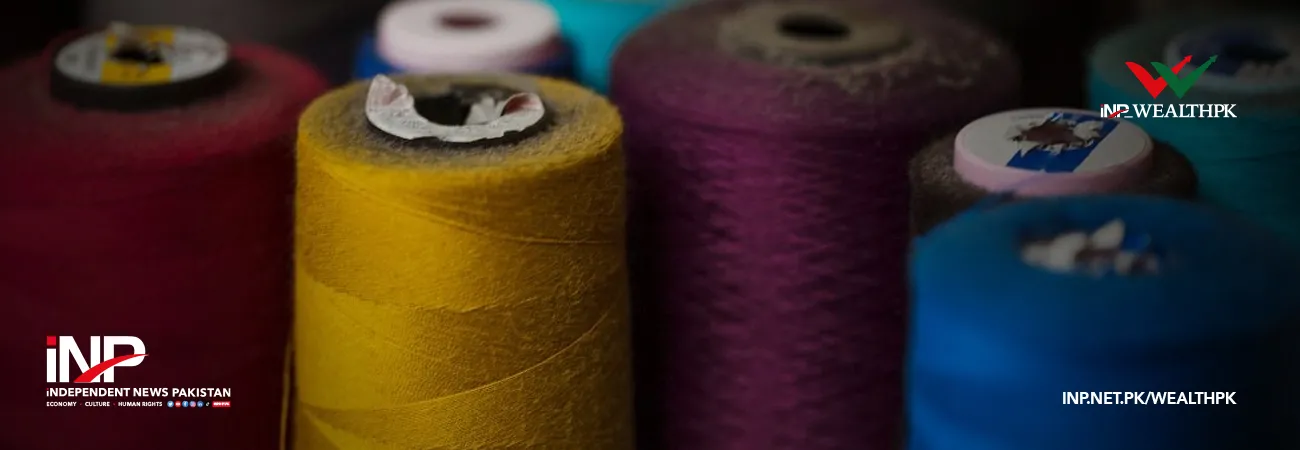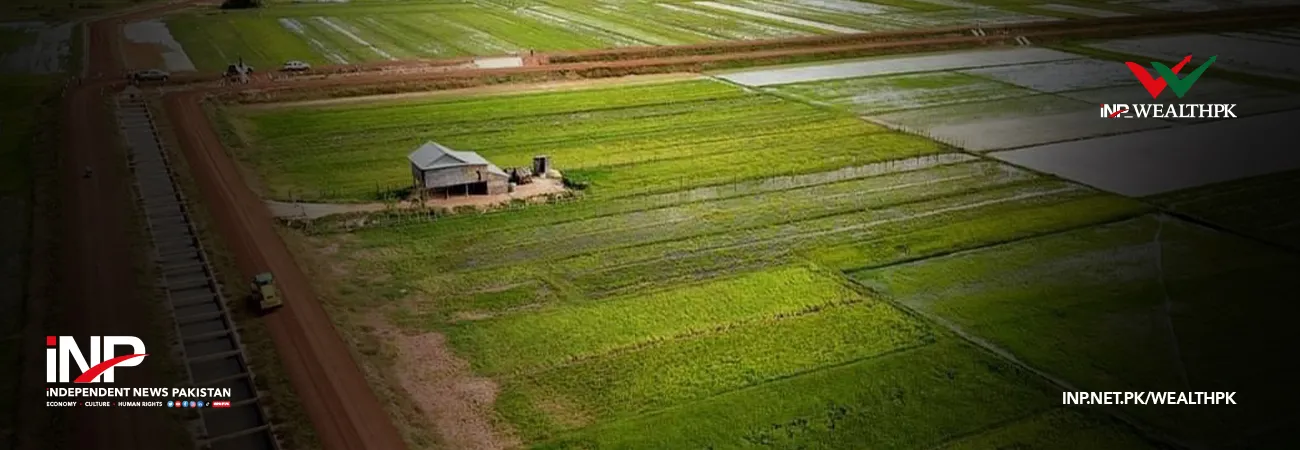INP-WealthPk
By Hamid Mahmood
ISLAMABAD, April 14 (INP-WealthPK): Pakistan and Tajikistan have agreed to boost their trade, as Tajikistan aims to tap into prospective areas of cooperation, reports WealthPK.
Ismatullo Nasreddin, Tajikistan's ambassador to Pakistan, has voiced his desire for stronger commercial and economic relations with his sister nation. He expressed pleasure at being accompanied by his delegation to the apex chamber of the Federation of Pakistan Chambers of Commerce and Industry (FPCCI) to explore possibilities for collaboration.
Ismatullo Nasreddin said that the Pakistani business community was very important to him in terms of exploring bilateral collaboration, whether it was trade, investments, joint ventures, or bilateral linkages in a variety of areas such as commerce, energy, and furniture.
In addition to the high degree of political engagement and cooperation in the military and security spheres, trade and economic indicators must also be improved. According to WealthPk, the bilateral trade turnover in 2019 was $7.95 million on the Pakistan side. Owing to trade limitations, the trade volume dropped to $2.88 million in 2020. The amount of commerce in 2021 climbed significantly, reaching $5.46 million (about 89.58 % increase). The swings in trade are reflected in the graph below.
[caption id="attachment_65993" align="aligncenter" width="696"] Source: UN Comtrade Database/WealthPK[/caption]
In the domains of energy, security, trade, military, culture, infrastructure development, and communication, the two nations have signed over 64 multilateral cooperation agreements. The two sides agreed to expand people-to-people connectivity and hold frequent delegation exchanges.
Tajikistan is a key participant in the Belt and Road Initiative (BRI), which includes investments in cement facilities, road infrastructure, and a gas pipeline, among other things. Tajikistan's biggest receivers of foreign direct investment (FDI) are hydro-energy, infrastructure, textiles, agriculture, mining, and processing industries.
Pakistan, as a partner of the BRI initiative, provides Tajikistan with several options for investment through the CPEC SEZs. In this context, President of Pakistan Dr. Arif Alvi has emphasized the need for economic and cultural exchanges in order to increase bilateral commerce and strengthen cultural ties.
He said the Gwadar Port and CPEC provide huge prospects for regional nations and that Tajikistan could benefit from these changes by exporting its commodities to other countries through the Gwadar port. He expected that high level exchanges between the two nations' military and defense leadership will further increase military cooperation.
Tajikistan is the Central Asian country closest to Pakistan's borders in the north. In recent decades, the Central Asian countries have pushed to penetrate regional markets, notably those of regional economic players such as China, India, Pakistan, and West Asian countries.
As a result, the CPEC will serve as a conduit for landlocked CARs to enhance their business linkages with the rest of the world through the Gwadar Port. For all parties concerned, the CPEC would increase regional economic and social integration while also promoting growth. Furthermore, the region is expected to attract FDI as other economic giants regard the region as a lucrative investment opportunity.
China and Pakistan, on the other hand, are keen on Central Asian nations due to the abundance of natural resources, particularly massive energy reserves. As a result, bilateral and international trade and interdependence are likely to reduce conflict and promote regional connectivity and integration.
The Pakistani government should be hopeful about the CPEC's long-term success since it will help not just Central Asian and South Asian economies, but also contribute to regional peace and stability through enhanced connection and collaboration.
Source: UN Comtrade Database/WealthPK[/caption]
In the domains of energy, security, trade, military, culture, infrastructure development, and communication, the two nations have signed over 64 multilateral cooperation agreements. The two sides agreed to expand people-to-people connectivity and hold frequent delegation exchanges.
Tajikistan is a key participant in the Belt and Road Initiative (BRI), which includes investments in cement facilities, road infrastructure, and a gas pipeline, among other things. Tajikistan's biggest receivers of foreign direct investment (FDI) are hydro-energy, infrastructure, textiles, agriculture, mining, and processing industries.
Pakistan, as a partner of the BRI initiative, provides Tajikistan with several options for investment through the CPEC SEZs. In this context, President of Pakistan Dr. Arif Alvi has emphasized the need for economic and cultural exchanges in order to increase bilateral commerce and strengthen cultural ties.
He said the Gwadar Port and CPEC provide huge prospects for regional nations and that Tajikistan could benefit from these changes by exporting its commodities to other countries through the Gwadar port. He expected that high level exchanges between the two nations' military and defense leadership will further increase military cooperation.
Tajikistan is the Central Asian country closest to Pakistan's borders in the north. In recent decades, the Central Asian countries have pushed to penetrate regional markets, notably those of regional economic players such as China, India, Pakistan, and West Asian countries.
As a result, the CPEC will serve as a conduit for landlocked CARs to enhance their business linkages with the rest of the world through the Gwadar Port. For all parties concerned, the CPEC would increase regional economic and social integration while also promoting growth. Furthermore, the region is expected to attract FDI as other economic giants regard the region as a lucrative investment opportunity.
China and Pakistan, on the other hand, are keen on Central Asian nations due to the abundance of natural resources, particularly massive energy reserves. As a result, bilateral and international trade and interdependence are likely to reduce conflict and promote regional connectivity and integration.
The Pakistani government should be hopeful about the CPEC's long-term success since it will help not just Central Asian and South Asian economies, but also contribute to regional peace and stability through enhanced connection and collaboration.













